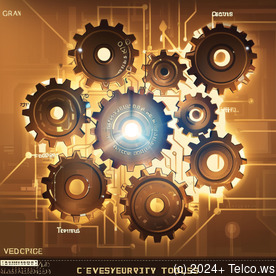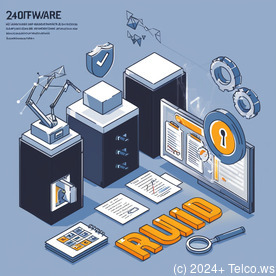
CFML Code Review and Quality Assurance Services




Understanding CFML Code Review and Quality Assurance
ColdFusion Markup Language (CFML) is a powerful scripting language that serves as a backbone for dynamic web application development, enabling developers to create robust applications at an accelerated pace. However, with rapid development often comes the risk of overlooking fundamental programming principles, resulting in "technical debt" that could compromise application integrity.
CFML code review and quality assurance (QA) processes play a pivotal role in identifying and rectifying coding inefficiencies, enhancing overall application performance, security, and maintainability. The review process includes observing how code is structured and ensuring it meets industry best practices, which encompasses not only functional correctness but also scalability, readability, and access control standards.
Furthermore, the intent of a code review extends beyond pinpointing errors. It promotes a culture of proactive improvement within teams, fostering collaborative environments where developers can share insights, learn from one another, and collectively contribute to a higher standard of coding practices. This culture is essential in today's fast-paced technological landscape, where applications must adapt continuously to ever-evolving user requirements.
In essence, a commitment to thorough code review and quality assurance is not merely beneficial; it is foundational in developing high-performance applications that can endure the rigors of modern web environments.




Economic Considerations of CFML Code Quality
When evaluating CFML code quality from an economic perspective, it quickly becomes evident that investing in professional code review yields significant returns that can profoundly impact a business's financial health and operational efficiency:
- Reduced Maintenance Costs: A proactive approach to quality assurance can significantly decrease ongoing maintenance expenses associated with bug fixes and software updates. Well-structured code reduces the complexity of future modifications, leading to resource savings that can be redirected toward innovation.
- Increased Application Performance: Quality code reduces latency and enhances load times, pivotal factors in retaining user engagement. Research consistently shows that users expect pages to load within a few seconds; exceeding these expectations can boost conversion rates and customer satisfaction. In fact, a study by Akamai indicates that just a 100-millisecond improvement in load time can enhance conversions by 7%.
- Risk Mitigation: Regularly conducting code reviews allows organizations to identify vulnerabilities that could lead to security breaches. These proactive measures not only guard against financial losses linked to data breaches but also protect against reputational damage that could arise from insecure applications.
- Enhanced Scalability: High-quality code lays a strong foundation for future development. When the codebase is clean and efficient, it simplifies the integration of additional features, allowing organizations to pivot and adapt to shifting market needs with minimal friction.
- Strategic Competitive Advantage: Organizations dedicated to maintaining high-quality standards in their applications are better positioned to respond swiftly to user feedback and market dynamics, leading to innovation opportunities and first-mover advantages.
Ultimately, leveraging professional CFML code review is an investment that pays dividends, not just in cost savings, but in the potential for enhanced growth and market presence.




Political Perspectives on Code Quality Standards
As software applications increasingly influence everyday life and commerce, the corresponding political scrutiny on technology standards has intensified. Governments globally are implementing regulations to safeguard user data and ensure software reliability, mandating organizations to comply with standards that promote both ethical practices and technical excellence.
Engaging in thorough CFML code reviews helps organizations align their application development practices with these regulatory demands, reducing the risk of non-compliance penalties, which can range from hefty fines to operational restrictions. By demonstrating adherence to established coding standards and practices, organizations not only avoid legal pitfalls but also establish themselves as trustworthy entities in the eyes of stakeholders and consumers.
This political lens also encompasses pressing issues surrounding data privacy and security. By committing to quality assurance processes, organizations are positioned as responsible corporate citizens, fostering public trust and enhancing their reputational capital. In an age where consumer sentiment can shift rapidly in response to perceived negligence, alignment with core ethical principles can serve as a strategic business differentiator.




Social Impact of Quality Code Development
The societal implications of prioritizing high-quality CFML code extend far beyond functional integrity. Code quality ultimately impacts the user experience, which has both social and cultural ramifications. Applications designed with user-centric principles in mind foster accessibility, ensuring that people from diverse backgrounds and abilities can benefit from technology.
Additionally, organizations that promote socially responsible coding practices can enhance their brand image and reputation significantly. A strong social responsibility narrative can increase customer loyalty; users are more inclined to engage with brands that demonstrate ethical practices and a commitment to quality standards.
Moreover, quality code increases user satisfaction, which can lead to higher retention rates and positive word-of-mouth recommendations. In today's interconnected digital economy, a solid reputation can amplify an organization's outreach and growth potential. As consumer choice expands, the importance of trust and quality plays a more significant role in driving business decisions and cultivating customer relationships.




Environmental Perspective of Code Efficiency
While the immediate focus of code review typically centers on performance and security, the environmental implications are an often-overlooked aspect of software development. Efficient code contributes to reduced computational resource requirements, which translates to lower power consumption and a smaller carbon footprint.
As environmental concerns grow, businesses are increasingly held accountable not only for their commercial practices but also for their ecological impact. By optimizing applications to use processing power and bandwidth more efficiently, organizations can play a pivotal role in addressing climate change while simultaneously cutting operational costs.
Furthermore, adopting eco-friendly development practices can attract environmentally conscious consumers, enhancing brand loyalty. Organizations committed to sustainability resonate with a growing demographic of environmentally aware users who prioritize ethical consumption and sustainable business practices.




Legal Considerations Surrounding Code Quality
The legal landscape in software development cannot be overstatedpoor code quality can expose organizations to substantial legal liabilities, particularly regarding data protection, copyright issues, and software licensing agreements. Businesses that fail to meet quality standards may inadvertently violate regulations like GDPR, exposing themselves to significant fines and reputational harm.
Investing in CFML code reviews is an effective strategy for mitigating these risks. By ensuring that the codebase is compliant with legal requirements and security best practices, organizations shield themselves from potential lawsuits and penalties, supporting long-term sustainability and operational continuity.
Moreover, fostering a culture of compliance and ethical coding evolves into a fundamental brand value proposition, underscoring the organizations commitment to accountability and professionalism in the eyes of consumers and partners alike.




Historical Perspectives on Code Quality and Review Processes
Throughout the history of software development, attitudes towards code quality have shifted significantly. In earlier eras, expedience often superseded meticulous coding practices, leading to applications riddled with bugs and inefficiencies. As markets advanced and technology became more integral to business operations, it became clear that prioritizing quality was imperative to build robust, long-lasting applications.
The advent of methodologies such as Agile and DevOps marked significant shifts in how developers approached code quality. These frameworks emphasized iterative processes, regular updates, and a feedback-rich environment, leading to the institutionalization of code reviews as a standard practice.
Reflections on historical coding practices offer valuable insights into the evolution of software development. They remind us that, as the industry continues to evolve, so too must the standards and practices that govern coding. Today's emphasis on quality assurance is shaped by lessons learned, making continuous improvement a critical component of future software development.




The Technological Landscape of CFML Code Review
The technological advancements surrounding CFML code review have been instrumental in enhancing how developers assess code quality. Tools such as static code analyzers, which identify vulnerabilities and potential errors before deployment, have become indispensable in the modern development toolkit. Automated testing setups enable developers to run multiple scenarios efficiently, catching unexpected behaviors early in the development cycle.
Moreover, integrated development environments (IDEs) with built-in support for collaborative coding practices provide immediate feedback, helping teams identify areas for improvement in real-time. Technologies such as cloud computing and container orchestration allow developers to create isolated environments for thorough testing without impacting the production deployment, further ensuring that quality assurance can take place efficiently.
Innovation is also making inroads into AI and machine learning, enabling smart code review tools that analyze patterns in large codebases and suggest enhancements. This shift can lead to higher quality standards and a deeper understanding of potential pitfalls that may have otherwise gone unnoticed.




Conclusion: Embracing Quality in CFML Development
In conclusion, the importance of engaging in CFML code review and quality assurance resonates across multiple sphereseconomic, political, social, environmental, and technological. By adopting a proactive approach to code quality, organizations not only bolster their applications' performance but also enhance their operational resilience and customer trust. The commitment to quality standards is foundational for success in todays competitive and complex software landscape.
For organizations seeking to elevate their ColdFusion applications, investing in our comprehensive CFML Code Review and Quality Assurance Services is a pivotal step. Offered at the competitive price of $850, our expertly designed services will fortify your applications against future challenges and enhance their long-term viability. Interested in how we can assist you? Feel free to contact us at www.telco.ws through email, phone, or our online form. If you are ready to invest in your application's quality, please proceed to our Checkout Gateway to complete your purchase of $850. Once your payment is complete, be sure to reach out with your receipt and contact details to arrange your CFML Code Review and Quality Assurance Service. Thank you for considering our services, and we look forward to supporting your success!
Elevate Your ColdFusion Applications
Don't waitconnect with our expert team today. By committing to a thorough CFML code review, you're making a sound investment in the quality, security, and performance of your applications, which is essential for achieving long-term business success.
